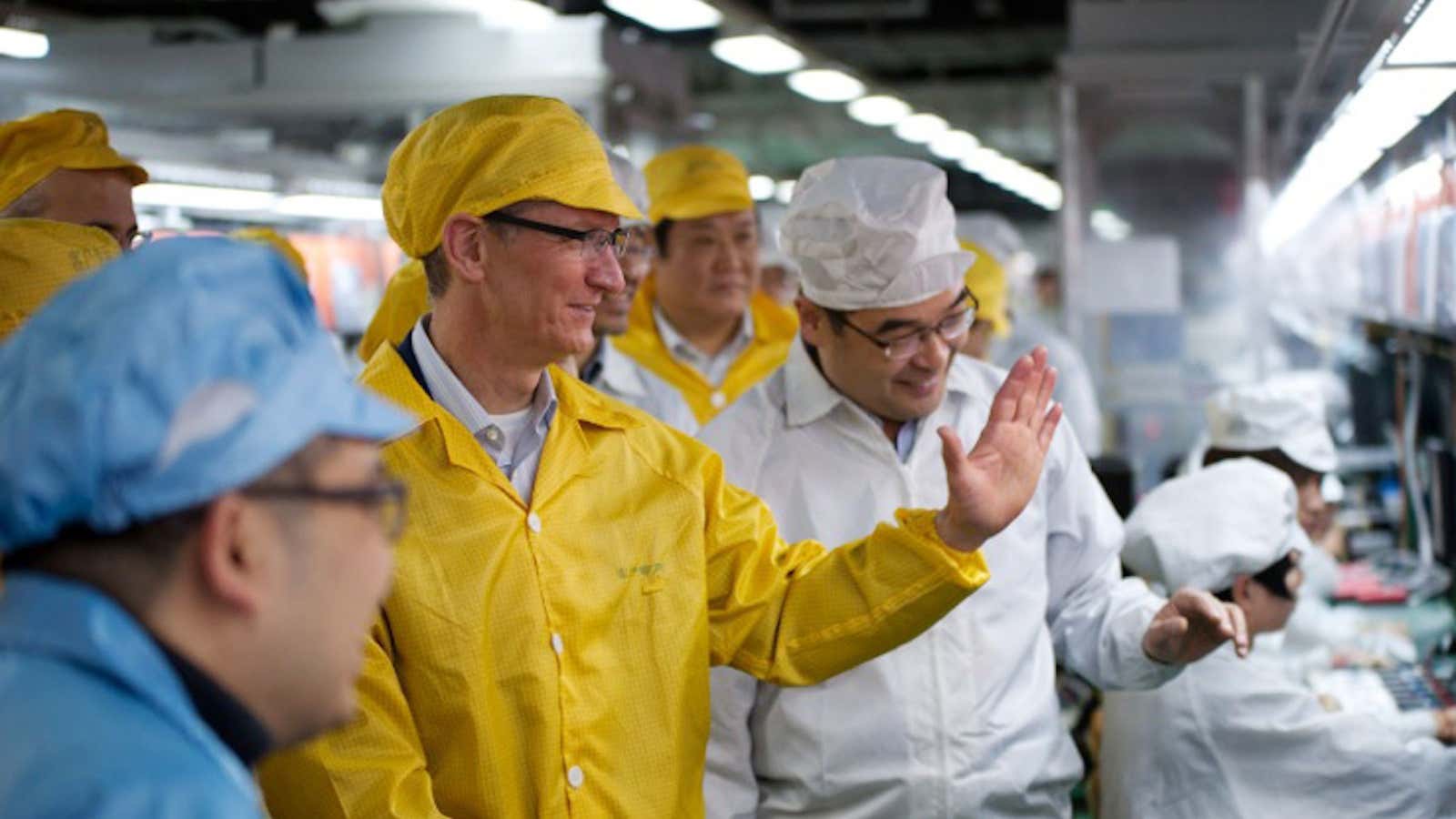In the ongoing patent trial between Samsung and Apple, it’s easy to see how a South Korean company pitted against an American one becomes a proxy battle between nations.
It’s hardly a fair or accurate framing, but Apple did itself no favors yesterday by invoking the good old days when televisions and other electronics were made in the USA. In closing remarks, Apple lawyer Harold McElhinny recounted a childhood memory of watching such TVs, adding that manufacturers failed to protect their intellectual property and were driven out of business. He pointedly concluded: “We all know what happened.”
Opposing counsel, Samsung’s Bill Price, then asked for a mistrial, saying that McElhinny presented “absolutely no evidence” for his statements and was “appealing to race.”
McElhinny told the judge, “I did not say a word about race, and I did not say Asian.” Apple did not immediately respond to a request for comment.
It seems likely that McElhinny’s statement was a “dog whistle,” a coded appeal to those in the audience who are already predisposed to an unspoken line of reasoning—xenophobes, for example. Americans are no strangers to these attitudes; 19th-century “yellow peril” culminated in a 10-year ban on immigration from China.
Today, that fear has been replaced with a more general wariness of the rising economic, technological, and manufacturing power of Asia. Widespread unemployment and the loss of manufacturing jobs have hardly helped matters.
Thus, McElhinny’s argument, while fraught, isn’t completely illogical. Apple has faced increasing competition from Asian firms, not just Samsung, but also China’s Lenovo—the world’s largest computer manufacturer. Officials at Samsung have said that, having overtaken Apple in smartphone sales, they intend to do the same with tablets. After another court loss earlier in the week now allows Apple to ban sales of certain patent-infringing Samsung phones, this accusation might be a last-ditch effort.
And Samsung is right to worry about bias, real or perceived. Lawyers for foreign civil plaintiffs often complain of US juries’ bias against their clients—the domestic client wins 64% of the time—and there is some scholarship to support that claim.
Nonetheless, the judge quickly struck down Samsung’s motion, instead re-instructing the jury of its responsibility to be impartial. The Samsung team has said it will revive the motion in post-trial filings. This time, the company might want to remind Apple where it manufactures most of its products, too.
